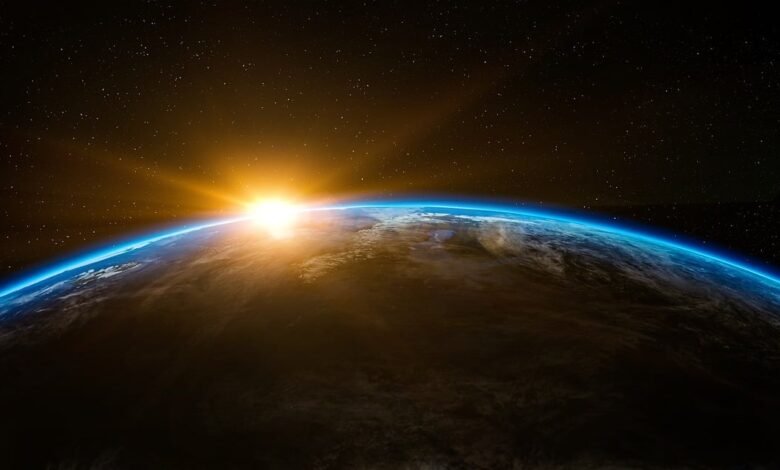
On December 30, 2024, residents of Mukuku Village in Makueni County witnessed a bizarre and potentially hazardous incident when a metallic object weighing approximately 500 kg fell from the sky, landing in the village at around 3:00 PM. According to the Kenya Space Agency, the object, a 2.5-meter-wide metallic ring, was identified as a fragment of a space object—a separation ring from a launch vehicle.
The Kenya Space Agency says it rushed to the scene on December 31, securing the debris and initiating investigations. However, the incident has sparked significant concerns about the role of the Kenya Space Agency and the dangers posed by space debris.
Where Was the Kenya Space Agency?
It is astonishing that an object of such mass and size could enter Kenyan airspace, fall in a populated area, and only be detected after local residents reported it. This raises serious questions about the preparedness and monitoring capabilities of the Kenya Space Agency. Arguments have been raised that an agency of this sort – responsible for overseeing Kenya’s airspace and safeguarding its citizens – would be aware of such occurrences in real-time. However, the reality appears far from this expectation.
This incident brings into sharp focus the core responsibilities of the Kenya Space Agency. If the agency is not monitoring airspace for potential hazards, what exactly is it doing? Critics argue that such events reveal a glaring gap in the agency’s mandate and execution. The public deserves answers about what proactive measures the Kenya Space Agency has in place to detect, mitigate, and respond to space-related incidents.
The Growing Threat of Space Debris
This incident is not just a Kenyan problem — it is a global one. As the race to space intensifies among countries and private companies, the proliferation of satellites, rockets, and associated debris has become a significant concern. Space debris re-entering Earth’s atmosphere poses a serious threat to public safety, infrastructure, and even national security.
The metallic ring that fell in Mukuku Village is a stark reminder of the dangers posed by potentially unchecked space activities. While the Kenya Space Agency confirmed that the object poses no immediate threat, the potential consequences of such incidents in more populated or sensitive areas cannot be ignored. What if the debris had caused fatalities or significant property damage? Who would be held accountable?
The Need for Stricter Regulations
The international community must take urgent steps to address the risks associated with space debris. Regulations governing space activities need to be stringent, holding both governments and private entities accountable. Entities launching satellites and rockets should be required to:
- Track and monitor debris: Real-time tracking systems should ensure space debris is accounted for and can be predicted before re-entry.
- Ensure controlled re-entry: Spacecraft components should be designed to burn up entirely during re-entry or be guided to fall in designated, unpopulated zones, such as oceans.
- Compensate victims: Countries and companies responsible for debris causing damage should be obligated to compensate affected parties, as stipulated under international space law.
Unfortunately, in incidents like the one in Makueni, accountability remains murky. Preliminary investigations by the Kenya Space Agency indicate that the fallen object originated from a launch vehicle, but there is no mention of identifying the responsible entity or pursuing compensation.
A Wake-Up Call for Kenya
For Kenya, this incident should serve as a wake-up call. As a country aspiring to grow its presence in the space industry, Kenya must strengthen its capabilities in space surveillance and monitoring. The government should invest in technology and expertise to ensure such incidents do not go undetected in the future. Additionally, Kenya should advocate for stronger international frameworks to address the issue of space debris.
The Way Forward
The Mukuku Village incident highlights both the opportunities and challenges of the burgeoning space age. While space exploration and satellite technology offer immense benefits, they also come with risks that must be carefully managed. The Kenya Space Agency must step up its efforts to protect Kenyan airspace and ensure public safety. At the same time, the global community must work towards making space exploration safer and more sustainable.
Until then, the people of Mukuku Village—and indeed the rest of Kenya—are left wondering: How many more incidents like this will it take before action is taken?






